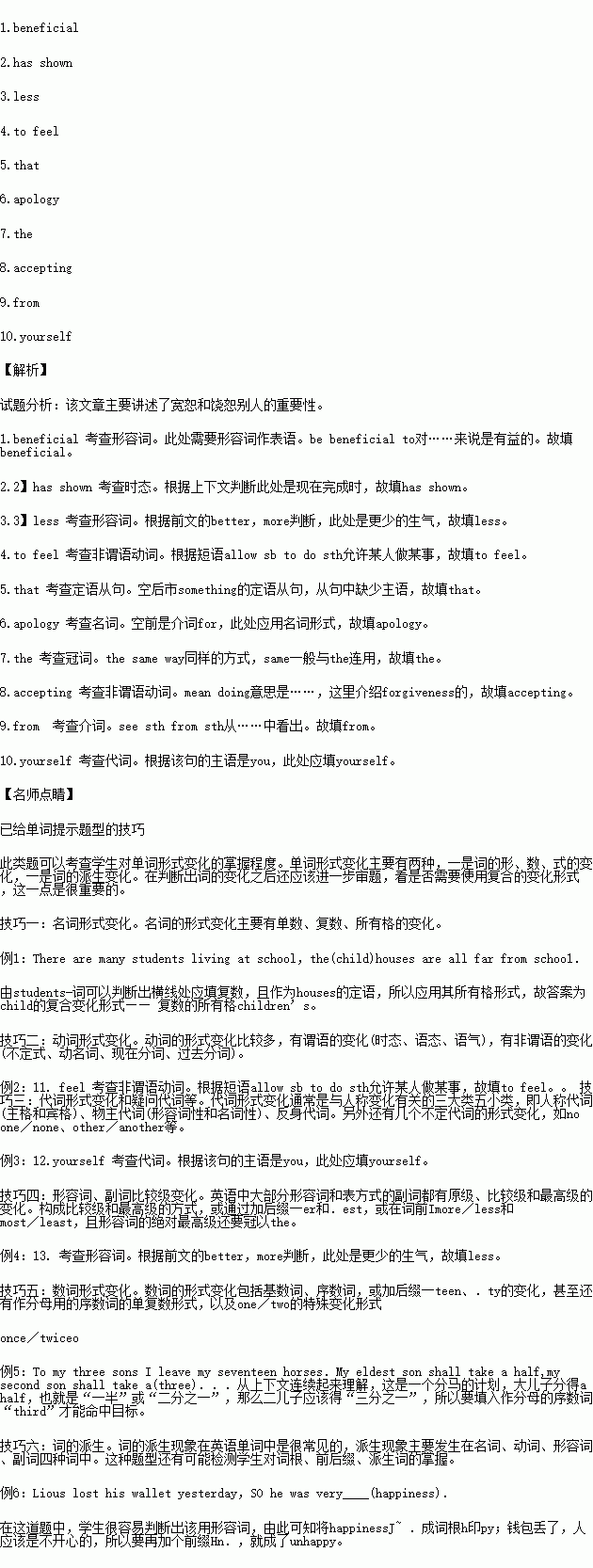
阅读下面材料,在空格处填入适当的内容(1个单词)或使用括号中单词的正确形式。
When someone has deeply hurt you, it can be very difficult to let go of your anger. But forgiveness is possible --- and it can be surprisingly 1. (benefit) to your physical and mental health. So far, research 2. (show) that people who forgive can have more energy, better appetite and better sleep. “People who forgive show 3. (little) anger and more hopefulness,” says Dr. Frederic Luskin, who wrote the book Forgive for Good. “So it can help reduce the tiredness out of the immune system and allow people 4. (feel) more energetic.”
So when someone has hurt you, cool down first. Take a couple of breaths and think of something 5. gives you pleasure: a beautiful scene in nature, or someone you love. Don’t wait for an 6. (apologize). “Many times the person who hurt you may never think of apologizing,” says Dr. Luskin. “They may have wanted to hurt you or they just don’t see things 7. same way. So if you wait for people to say sorry, you could be waiting a very long time.”
Next keep in mind that forgiveness does not necessarily mean 8. (accept) the action of the person who upsets you. Instead, learn to look for the love, beauty and kindness around you. Finally, try to see things 9. the other person’s perspective. You may realize that he or she was acting out of ignorance. To gain perspective, you may want to write a letter to 10. (you) from that person’s point of view.
《学英语报》答案网站2021-2022八上高三试题答案
阅读理解。
When John was growing up, other kids felt sorry for him. His parents always had him weeding the garden, carrying out the garbage and delivering newspapers. But when John reached adulthood, he was better off than his childhood playmates. He had more job satisfaction, a better marriage and was healthier. Most of all, he was happier. Far happier.
These are the findings of a 40-year study that followed the lives of 456 teenage boys from Boston. The study showed that those who had worked as boys enjoyed happier and more productive lives than those who had not. “Boys who worked in the home or community gained competence (能力) and came to feel they were worthwhile members of society,” said George Vaillant, the psychologist (心理学家) who made the discovery. “And because they felt good about themselves, others felt good about them.”